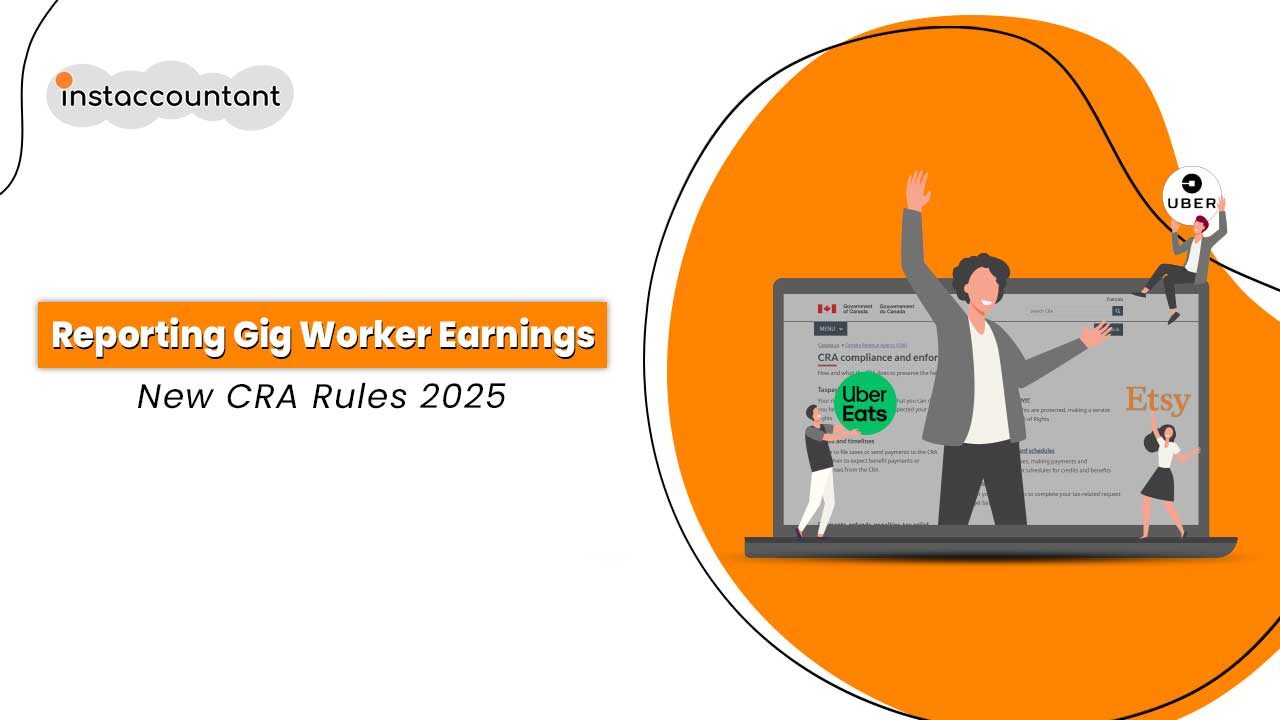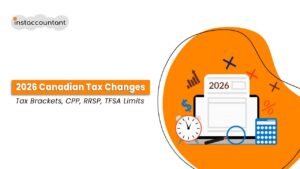The gig economy is booming in Canada, with more and more people earning flexible income through platforms like Uber, Etsy, and Airbnb. These opportunities offer freedom but also come with tax responsibilities that can be tricky to navigate. Starting in 2025, new rules under Bill C-47 are changing how gig worker earnings are reported to the Canada Revenue Agency (CRA), making tax season a little more straightforward but more scrutinized.
If you’re a gig worker, this is what you need to know to stay on top of your taxes, avoid penalties, and maximize your tax deductions.
What’s Changing with Bill C-47?
Before 2025, gig workers were fully responsible for reporting their earnings to the CRA. Now, with Bill C-47, the platforms you work with (like Uber, Etsy, Airbnb, and others) will play a more significant role in the process. These gig economy platforms will now report your earnings directly to the CRA.
So, what does that mean for you?
- More Transparency: The CRA will get a clearer picture of your earnings, reducing the chance of unintentional underreporting.
- Less Room for Error: Platforms must report your income if you meet certain thresholds, so there’s less room for mistakes.
- Easier Reconciliation: With platforms sending the CRA your income data, it’ll be easier for you to match up your records during tax season.
CRA Reporting Requirements for Gig Worker Earnings
In 2025, gig platforms will be required to collect and share specific information with the Canada Revenue Agency (CRA) on an annual basis. The first reporting deadline is January 31, 2025, which will include income earned in 2024.
Here’s what will be shared:
- Personal Information: Your name, date of birth, address, and Social Insurance Number (SIN).
- Income Details: The total amount of money you earned through the platform during the year.
However, not every gig worker will have their information reported. You will only be flagged for reporting if you meet both of these conditions:
- You completed 30 or more activities on the platform in the year (e.g., rides, deliveries, sales, bookings).
- You earned more than $2,800 through the platform.
For example, if you drove for Uber and earned $3,200, you will be reported. However, if you only made $2,500 selling on Etsy, you will not meet the reporting threshold.
How Will This Affect Your Taxes?
Increased CRA Scrutiny: The CRA will now receive direct reports of your earnings from the platforms you use, which makes it harder to underreport your income. You could face an audit or penalties if the numbers don’t match.
The Importance of Accurate Record-Keeping: This is crucial. You’ll want to ensure your records match the reports gig platforms send to the CRA. Here’s what to keep track of:
- Tax Summaries from platforms like Uber, Etsy, or Airbnb.
- Receipts for Expenses such as gas, internet bills, or office supplies.
- Mileage Logs if you’re driving for delivery or rideshare services.
- Documents for business purchases, such as equipment or packaging materials.
Get Access to the Data: Platforms must send you a copy of the information they send to the CRA. Review it carefully. If there are any discrepancies, contact the platform to fix the mistake before filing your taxes.
Go Digital: While not required under Bill C-47, filing taxes online is faster and reduces errors. Plus, if you’ve earned over $10,000 or filed five or more T4 slips, e-filing is mandatory.
Tax Deductions You Don’t Want to Miss
The good news is that you can reduce your Canadian tax liability by claiming several business-related deductions. Here’s a list of common ones for gig workers:
- Vehicle Expenses: If you use your car for work, you can deduct a portion of:
- Gas
- Maintenance (oil changes, tire repairs)
- Insurance (for business use)
- Depreciation (on the business portion)
- Home Office Expenses: If you work from home, you may be able to claim a portion of:
- Rent
- Utilities (heating, electricity, internet)
- Office supplies
- Supplies and Materials: If you sell products online, you can claim the costs of materials, like fabric, paint, or packaging.
- Software and Subscriptions: Any apps or software you use for your gig work, like listing tools for eBay or editing software for Airbnb hosts, can be deductible.
- Phone and Internet Bills: A portion of your phone and internet bills can be claimed if used for work. Keep track of business calls or data usage to support your claim.
- Insurance: Business-specific insurance (like rideshare car insurance) is deductible.
- Professional Fees: If you hire an accountant or tax consultant to help with your taxes, those fees are also deductible.
How to Stay Compliant with the CRA
- Report All Income: It’s essential to report every dollar you earn, no matter how small. The CRA is keeping a close eye on income reporting, and failing to report income accurately can lead to penalties.
- Keep Detailed Records: Use accounting tools like QuickBooks, Zoombooks, or a simple spreadsheet to track your income and expenses meticulously.
- Compare Your Records: When you receive income details from the platform you work with, make sure to cross-check them against your own records. If you notice any discrepancies, contact the platform immediately for corrections.
- File Your Taxes on Time: Submitting your taxes late can result in penalties, so be sure to file by the deadline to avoid additional charges.
- Seek Professional Help: If you’re unsure about the deductions you can claim or how new regulations may impact you, it’s worthwhile to consult a tax professional. Many experts specialize in gig economy taxes and can help you make the most of your situation.
Final Thoughts
Bill C-47 represents a significant shift in how gig worker earnings are reported in Canada. While it may seem like a lot to keep track of, maintaining accurate records will make tax time much more manageable. Plus, by taking advantage of deductions like vehicle expenses and home office costs, you can reduce your tax liability and keep more of what you earn.
Tax compliance might feel like a chore, but it’s all part of building a successful gig career. Keep hustling, stay smart, and remember that you’re building something amazing. Happy gigging!




